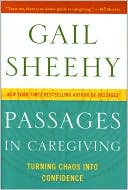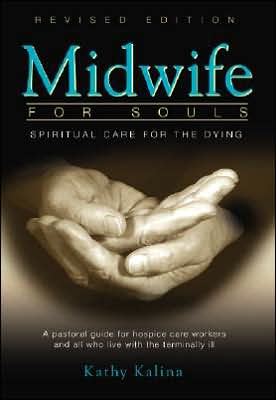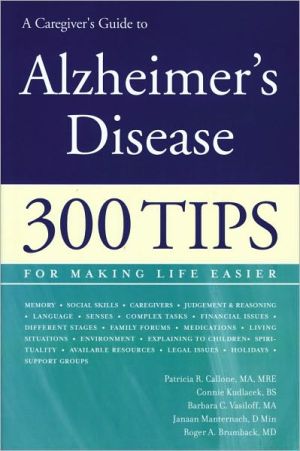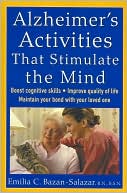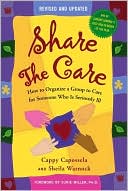Palliative Care Nursing: Quality Care to the End of Life
"\ This textbook has...introduced concepts and methods of education which [help] to move palliative nursing forward as an evidenced based practice of whole person care.\ -- Betty Ferrell, PhD, FAAN Research Scientist (From the Foreword)\ In this comprehensive textbook on palliative care nursing, editors Marianne Matzo and Deborah Witt Sherman succeed in bringing together the heart of nursing and the true meaning of palliative care with the most current evidence based practice.\ --GeriPal\...
Search in google:
"This textbook has...introduced concepts and methods of education which [help] to move palliative nursing forward as an evidenced based practice of whole person care." -- Betty Ferrell, PhD, FAAN Research Scientist (From the Foreword) "In this comprehensive textbook on palliative care nursing, editors Marianne Matzo and Deborah Witt Sherman succeed in bringing together the heart of nursing and the true meaning of palliative care with the most current evidence based practice."--GeriPalPalliative care is a philosophy of caregiving that integrates disease modification with supportive, compassionate therapies for patients at the end of life. Palliative care nurses are responsible for alleviating pain and other physical symptoms-along with satisfying the emotional, social, cultural, and spiritual needs of patients who are facing life-threatening illness. This third edition of Palliative Care Nursing provides more comprehensive newly updated content, knowledge, attitudes, skills, and cutting-edge teaching and learning strategies to achieve the AACN End-of-Life nursing competencies providing a lifespan approach. Now in its third edition, this book continues to emphasize the value of complementary, holistic modalities in promoting health, wholeness, and wellness, even as death approaches. Key topics discussed: Ethical aspects of palliative care Legal aspects of end-of-life decision-making Loss, suffering, grief, and bereavement on the part of patients and their families Symptom-specific nursing management of pain, anxiety, depression, fatigue, malnutrition, and dehydration-all common to palliative care How to communicate with the seriously ill and dying patients, their families, and their health care providers Disease-specific aspects of palliative care for those battling cancer, heart disease, lung disease, HIV/AIDS, end-stage renal and liver disease, neurological, and other disorders Doody Review Services Reviewer: Lisa Stepp, PhD, RN, APN, AOCN, CRNH (Private Practice)Description: Although palliative care and hospice have been an important part of medical service now for many years, clinician education in this area remains relatively new. Numerous nursing and physician education programs have started to integrate palliative care into their curriculum and appropriate texts are necessary to support this process. Purpose: Clinicians are unable to provide services for which they have not received appropriate instruction. This book proposes to provide such instruction for students and established clinicians in palliative and end-of-life care. All contributing authors to this book are experienced in the area of palliative care and well respected in the field. The wealth of knowledge they bring to the topic is unsurpassed. Audience: This book is most appropriate for nursing students, but clinicians just starting in palliative care as well as social workers and chaplains can benefit. The terminology is somewhat technical and will require some basic knowledge of nursing and science. Excellence in quality nursing care can only be achieved through appropriate education and direction. This book provides a framework that facilitates such quality care. Features: This book provides the most essential information regarding end-of-life care and is orgainzed around 15 core competencies. With an understanding of the holisitic approach of palliative care, the reader is exposed to a comprehensive curriculum to guide their practice and success. Assessment: Although there have been many books written regarding nursing care at the end of life, this book provides new information regarding appropriate curriculum development and implementation. Overall, the book is most appropriate for educators and use as a class textbook.
chapter
Section I: Looking at the Whole person in Palliative Care Chapter 1: Culture and Spirituality as Domains of Quality Palliative Care Chapter 2: Sexual Health and Intimacy Chapter 3: Holistic Integrative Therapies Section II: Societal and Professional Issues in Palliative Care Chapter 4: Societal Perspectives Regarding Palliative Care Chapter 5: The Nurses Role in Interdisciplinary and Palliative Care Chapter 6: Development of the Specialty of Hospice and Palliative Care Nursing Chapter 7: Ethical Aspects of Palliative Care Chapter 8: Legal Aspects of End-of-Life Decision Making Section III: Psychosocial Considerations Chapter 9: Communicating with Seriously Ill and Dying Patients, Their Families, and Their Health Care Providers Chapter 10: Family Caregivers Chapter 11: Loss, Suffering, Grief and Bereavement Section IV: Physical Aspects of Palliative Care: Diseases Chapter 12: Cancer Chapter 13: End Stage Heart Disease Chapter 14: Chronic Lung Disease Chapter 15: Neurological Disorders Chapter 16: End Stage Renal Disease Chapter 17: End Stage Liver Disease Chapter 18: HIV/AIDS Section V: Physical Aspects of Palliative Care: Symptoms Chapter 19: Pain Assessment and Pharmacological/Non-Pharmacological Interventions Chapter 20: Dyspnea Chapter 21: Anxiety, Depression, and Delirium Chapter 22: Gastrointestinal Symptoms Chapter 23: Fatigue Chapter 24: Skin Care Needs of Palliative Patients Chapter 25: Peri-Death Nursing Care
\ From The CriticsReviewer: Lisa Stepp, PhD, RN, APN, AOCN, CRNH (Private Practice)\ Description: Although palliative care and hospice have been an important part of medical service now for many years, clinician education in this area remains relatively new. Numerous nursing and physician education programs have started to integrate palliative care into their curriculum and appropriate texts are necessary to support this process. \ Purpose: Clinicians are unable to provide services for which they have not received appropriate instruction. This book proposes to provide such instruction for students and established clinicians in palliative and end-of-life care. All contributing authors to this book are experienced in the area of palliative care and well respected in the field. The wealth of knowledge they bring to the topic is unsurpassed. \ Audience: This book is most appropriate for nursing students, but clinicians just starting in palliative care as well as social workers and chaplains can benefit. The terminology is somewhat technical and will require some basic knowledge of nursing and science. Excellence in quality nursing care can only be achieved through appropriate education and direction. This book provides a framework that facilitates such quality care. \ Features: This book provides the most essential information regarding end-of-life care and is orgainzed around 15 core competencies. With an understanding of the holisitic approach of palliative care, the reader is exposed to a comprehensive curriculum to guide their practice and success. \ Assessment: Although there have been many books written regarding nursing care at the end of life, this book provides new information regarding appropriate curriculum development and implementation. Overall, the book is most appropriate for educators and use as a class textbook.\ \ \ 3 Stars from Doody\ \

